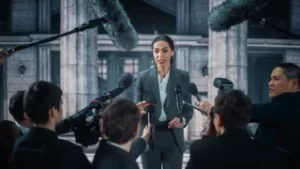If you are facing an upcoming mediation and need help understanding the process, hopefully this article will provide valuable insight for you.
Mediation is governed primarily by the Indiana Rules of Alternative Dispute Resolution. In most cases, mediation may be ordered by a court, or requested by either or both of the parties. Some jurisdictions offer mediation centers which handle mediations ordered by courts in their locale, often at a reduced price. This option is not available, however, in every jurisdiction.
What actually happens at a mediation? While much of that depends on factors such as the type of case you are dealing with, your particular mediator, and the preferences of the parties, there are some elements that are fairly standard. Generally, you will arrive at the mediation (hopefully with counsel), and you and the opposing party will be divided into two separate rooms. While some mediators will do introductions with both parties present, and in some cases even a full mediation is possible with both parties in the same room, these are fairly rare circumstances. Typically, both parties are divided from the beginning. There is a good chance that you will not even encounter the opposing party on your case during the mediation.
Clients often want their side of the story relayed to the mediator prior to the mediation starting. This is possible through the use of a document called a “Statement of Facts” or “mediation brief”. This is a case summary that may be provided by a party or (more commonly) their attorney, which outlines in detail the facts surrounding the case, the party’s positions, and any statutory or case law supporting those positions. Mediation briefs may be straightforward outlines of the facts, or they may be much more detailed, containing things like a history of the case, relevant statutory and case law references, and more.
Once the mediation formally gets started, the mediator will start with one party (usually the party that initiated the case). The mediator will sit with the first party, outline the process to them, and get an overview of that party’s position. The mediator will then take that first proposal over to the opposing party, and walk through the same process with them. That party will then offer their counter-position (assuming they have one), and the mediator will take that information over to the first party. From there, the cycle will repeat until either the parties come to an agreement, or it is determined that no settlement can be reached. If no agreement is reached during a mediation, then the case will proceed to its next phase, which in most cases means a trial or final hearing.
It is important to note that neither party in a mediation is required to come to an agreement. All that is required is that the parties participate in good faith and with an open mind. Indiana ADR Rules §2.1. Often, clients feel pressured by the mediator, their attorney, or the overall process itself, to arrive at an agreement at the mediation stage. Participants should bear in mind that, many times, coming to an mediated agreement is the most efficient and prudent way to bring a legal matter to a satisfactory conclusion. However, while attorneys and mediators can provide useful information and direction along the way, you should remember that it is ultimately your decision whether to settle an issue or proceed towards trial. You should not feel pressured into taking any deal or agreement that you are not satisfied or comfortable with.
While there are instances where mediations may be successfully completed without representation, having an attorney to guide you through the process will often prove very helpful. If you have additional questions about the mediation process, or need assistance with your legal matter, please get in touch.
NOTE
All legal references are made with respect to Indiana law. Please check the laws of your local jurisdiction if you live in another state.
The articles in this blog are for informational purposes only. No attorney-client relationship is established through the publication of these articles.







